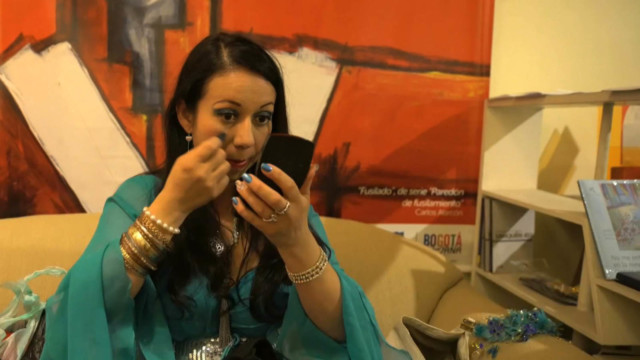According to some estimates, 11 million people worldwide consider themselves of the ethnic group known as “Roma.”
In Colombia the Roma are trying to preserve their culture and traditions as they make their home there.
CGTN’s Michelle Begue reports from Bogota.
Sixty-eight-year-old Jairo Demetrio, vice president of Union Romani, and his family are Roma living in Colombia. His parents came here from Russia and Greece in the 1940s, fleeing persecution in Nazi Germany. He remembers living in tents till his early twenties.
“It was a care free and independent life. We lived off of our luck, selling goats and livestock,” Demetrio said.
A humble and simple life is how the Demetrio family defines Roma life. They are artisans who work with metals and coppers. At home they speak the Romani language. Jairo said the majority of the Roma people living in Colombia no longer lead the nomadic life for which they’re known.
While a new generation pursues higher education and new careers, these families try to keep Roma traditions alive. At cultural events they share food, music and palm readings. They live a patriarchal family life, and try to pass on oral traditions including Roma code and laws.
Ruby Demetrio said she dislikes the way popular culture has portrayed the Roma. Some complain it portrays Roma culture as flashy, uneducated and crude.
We belong to certain Gypsy organizations where we work to show our Romani culture, what our community is like and show our pacifist and beautiful face,” Demetrio said.
According to a 2005 government census, there are nearly 5,000 Roma living in Colombia. The Colombian Roma organization said that number has exceeded 8,000. In 1999, the Colombian government officially recognized the Roma people as one of the country’s ethnic minority groups, so they can access educational, health and legal benefits.
“No country in the world has done what Colombia did. Even though we are not originally from Colombia. But they took us in as part of their culture, their folklore and we think that is very beautiful,” Ruby Demetrio said.
Without fear of persecution, Colombia’s Roma are settling down here to face a different struggle. That is how to be Roma and Colombian at the same time.
 CGTN America
CGTN America

